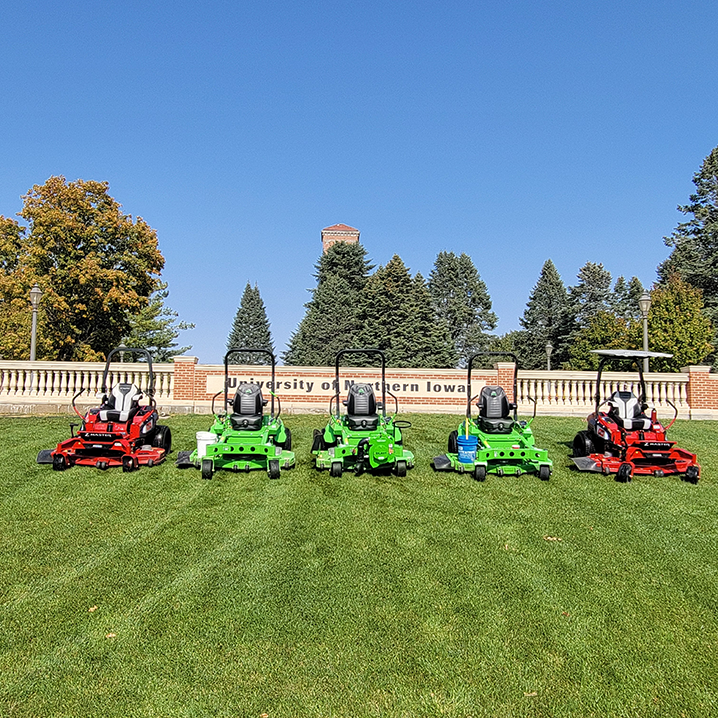UNI grounds crew sees benefits in shift to battery-powered equipment
UNI grounds crew sees benefits in shift to battery-powered equipment

The University of Northern Iowa is using more electric-powered equipment, and seeing several benefits including less noise, lower costs and safety.
In 2022, the grounds department noticed the significant noise created by traditional gas-powered mowers, especially around academic buildings, where the sound echoed into lecture halls.
“After realizing how disruptive the noise was, we began exploring ways to improve the campus environment for students,” says Jonathan Butler, assistant director of campus services and facilities management. The team conducted extensive research and identified an electric mower which operates at a much lower decibel level compared to gas-powered mowers.
Grounds staff swapped their usual mowers for the electric units for a week, paying attention to ride comfort, handling, run-time, cut quality and noise levels. “The staff were impressed by its quality, and we decided to move forward with the switch,” Butler says.
Now, not only does the department now have five electric-powered mowers, it also has electric-powered blowers, chainsaws, pole saws, string trimmers and push mowers. “We do still use gas-powered hand tools for project-based work because of the limited run-time of smaller electric tools,” says Butler.
Among many benefits, noise reduction has been the most notable improvement. That’s not only good for classes, but easier on the ears of maintenance staff as well. “The operators are no longer exposed to loud, continuous noise,” says Butler. “Additionally, the electric mowers don’t emit gas fumes, which has been a welcome change.”
Maintenance costs have also dropped, as Butler notes the team has experienced fewer maintenance problems. That means equipment spends more time in use, and less time in the repair shop. “With electric equipment, there are fewer moving parts and less need for repairs.”
The department's goal is to mow central campus entirely with electric equipment. However, larger open areas of turf, currently mowed by 104-inch gas-powered mowers, may still require combustion engines. “The electric mower industry continues to evolve, so we’re hopeful that larger electric models will become available in the future,” Butler says.
While higher upfront costs of electric mowers remain a barrier to expanding the fleet, Butler says the return on investment becomes clear: “We save money on gas, routine mower maintenance and overall operating costs.”




